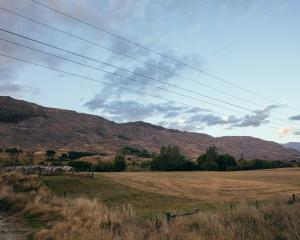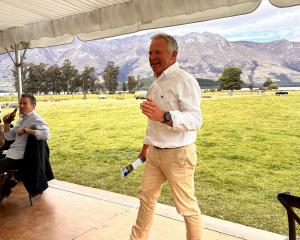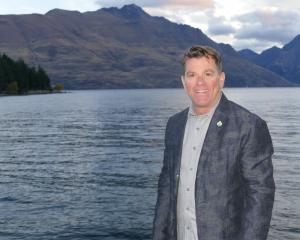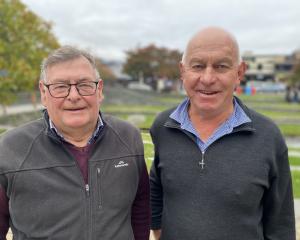A Queenstown doctor believes if a CT scanner had been in place at Lakes District Hospital, the treatment of a tourist who later died of severe traumatic brain injuries last year may have differed.
Corey Richard Docherty (23), of Massachusetts, United States, died in Dunedin Hospital on February 10 last year, having fallen from a fire escape at Base Backpackers in Queenstown early on February 6.
His inquest was held on papers by Coroner David Crerar.
In his written finding, released publicly yesterday, Mr Crerar said Mr Docherty was found in the alleyway beside the Shotover St backpackers at 8.30am on February 6.
It was the second death in the alleyway in recent years.
In 2009 English backpacker James Patrick Smith (25), of Kent, England, was found dead in the alleyway.
It was believed he had fallen from the roof of the building.
Mr Crerar said it appeared Mr Docherty, who was staying at the backpackers, fell from a first-floor fire escape earlier that morning, having exited the building through a fire door, which locked behind him.
No fault was found with the door and it was possible someone had left it not properly closed, meaning Mr Docherty was "unfortunately'' able to open the door with "a simple push''.
"I comment that this situation is not ideal and that 'The Base' Backpackers ... considers providing enhancement to door security to ensure that there is no repetition of the circumstances of [Mr Docherty's death].''
When admitted to Lakes District Hospital (LDH) at 10.10am, Mr Docherty was reported as suffering concussion and hypothermia.
"On admission'' observations made by Dr Morne Pienaar noted Mr Docherty was intoxicated and had possibly taken ecstasy.
However, blood samples taken after he died showed no evidence of drugs and a blood-alcohol level of 89mg per 100 millilitres of blood, which was likely to have dropped from about 150mg of alcohol per 100ml of blood at the time of the fall.
He was flown to Dunedin Hospital, where a CT scan revealed major and severe spinal and head injuries.
Mr Docherty's condition continued to deteriorate until he died, from severe traumatic brain injury on February 10.
Mr Crerar said there was no evidence provided to his inquiry to the effect that the medical care given by either Queenstown Lakes Hospital or Dunedin Hospital fell below the standard of best practice.
"It is a matter of regret that his injuries were so severe.''
Dr Pienaar said, however, in a submission to the inquest, appropriate equipment in Queenstown would have made a "substantial and significant difference'' to how doctors could have treated Mr Docherty.
Mr Crerar said the basis of the submission was that if the hospital had been equipped with a CT scanner, that would have enabled early diagnosis of the existence and extent of any brain injury and clinicians might have altered their approach to care provided.
"Dr Pienaar and his team were faced with a dilemma in that Corey Docherty was hypothermic on admission.
"They were required to re-warm him, although such re-warming may have been conducted differently, if they had known the extent of the brain injuries.‘‘It may have been preferable to cool a patient who had a brain injury.''
In response to that submission, the Southern District Health Board advised it was "impractical'' for the board to fund and supply a CT scanner to all main hospitals in its jurisdiction.
It cost about $2million to establish a scanner, and annual running costs were about $800,000.
Lakes District Hospital and Dunstan Hospital, at Clyde, combine to share a CT scanner. Mr Crerar said it was estimated that was operating for "only approximately two and a-half days per week''.
While Mr Crerar forwarded a copy of his findings to the DHB, he made no comment or recommendation on the submissions received.












